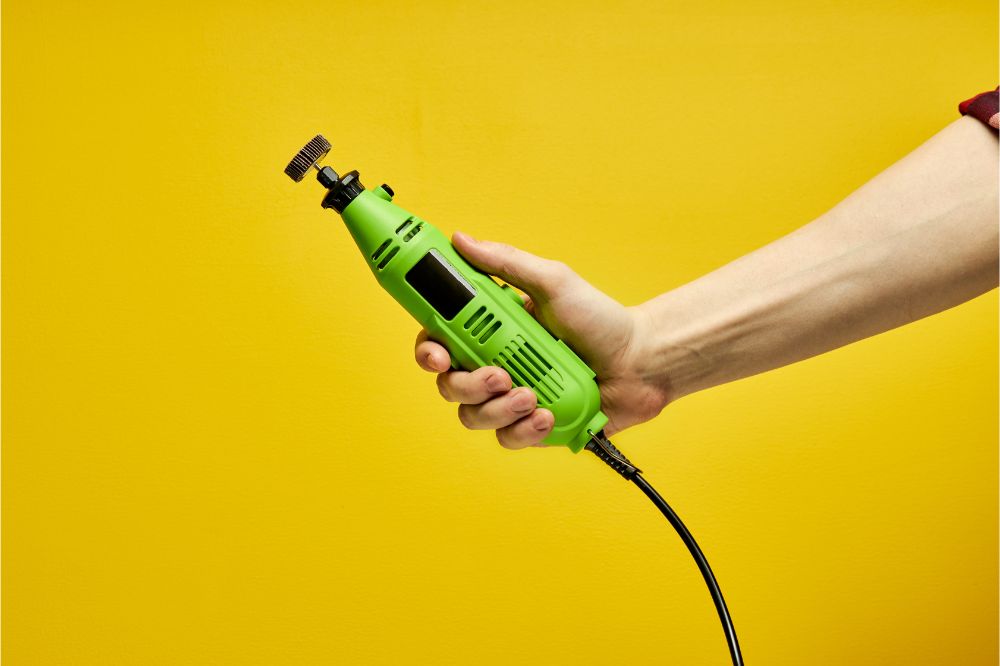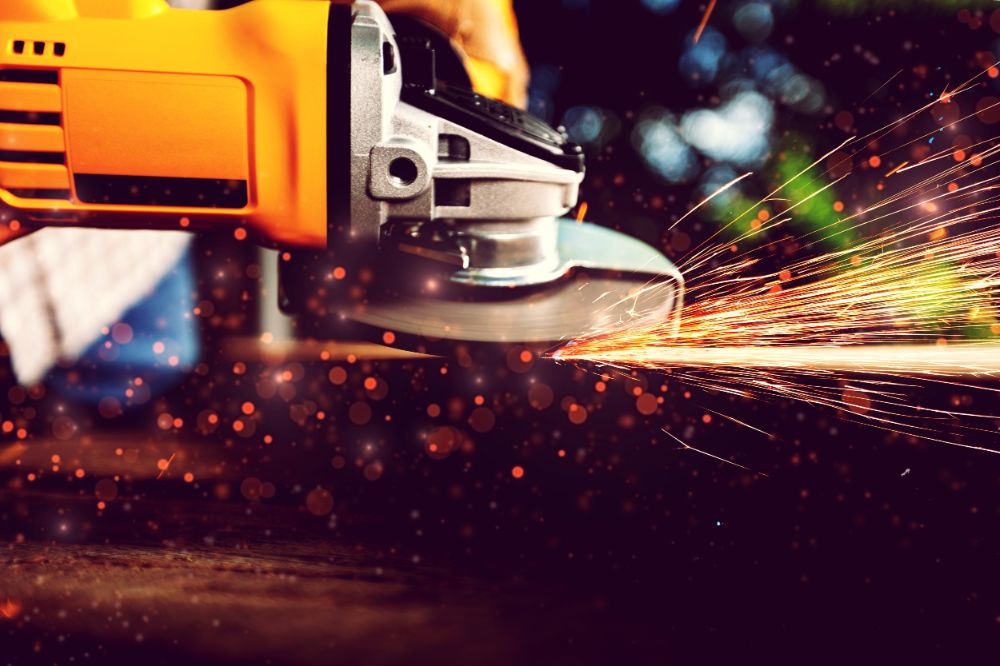How do angle grinders differ from die grinders? Do you need a grinder but aren’t sure which one is right for the job? In this article, you will learn which type of grinder is best for your job, and we will examine the advantages and disadvantages.
What Is a Die Grinder?
Die grinders are compact, versatile tools used for numerous tasks. With the right attachment, die grinders can be used for polishing surfaces, grinding pieces of wood or metal, eliminating rough edges, removing rust, sharpening blades, and much more.
What Is an Angle Grinder?
There are many applications for angle grinders. You can cut concrete, aluminum, pavers, bricks, wood, and most dense materials. They can sharpen tools, sand, and polish or grind materials.
Many different sizes of grinders are available. Generally, 10-12cm grinders are the most popular. Cordless or motorized power tools are available for more precise work.
How Do These Two Differ?
Size
It’s important to note that the size of each tool is one of the most significant differences. In general, both die grinders and angle grinders are handheld tools but die grinders are easier to hold with just one hand compared to angle grinders, which require both hands to operate. The handle on an angle grinder makes it a bulky tool, in contrast to a die grinder, which is contoured like a screwdriver.
The Cut-off
By using an angle grinder, not only can you cut off materials with ease, but you are also able to do so safely. This tool has a safety guard that eliminates the risk of shattered abrasive disc pieces. Unfortunately, this is something that occurs more often than not.
The die grinder’s cut-off wheel is perfect for small jobs. Their preliminary design makes them unsuitable for big tasks, which is made clear by the lack of safety guards. When you need a straight rotary tool with a cut-off wheel, you need to find one with a guard for extra safety precautions.
The Cost
Both grinders are relatively similar in price. Higher-end grinders like DeWalt and Makita are more expensive. There are a lot of off-brand models available at lower prices but do take quality into consideration.
DIY enthusiasts will find a grinder that meets their needs, while industry experts will have to spend more.
Power Source
Power is another major difference between the tools. In most cases, angle grinders are powered by electricity. As for die grinders, they use compressed air as their power source. Die grinders work on batteries, but most users prefer corded types.
Ultimately, angle and die grinders have specific advantages and purposes that make them excellent choices. Identify your purpose before purchasing these power tools and then proceed accordingly.
Versatility
For sheer versatility, die grinders come out on top. The main purpose of a grinder is to grind and cut. Both types are good for other purposes.
Die grinders have an incredibly wide range of applications. These grinders are equipped with dozens of attachments, making them extremely useful. Through the correct use of attachments, die grinders do a lot of work. Angle grinders work with many large projects but cannot do as much as die grinders can.
Flat and Curved Surfaces
As die grinders have circular heads and curved edges and corners, they are useful for dealing with intricate designs, handling corners and edges, and grinding or polishing holes.
Angle grinders have a large, flat disc head. They work well on flat and large, contoured exterior surfaces. When working with larger workpieces, angle grinders are better.

Pros and Cons of a Die Grinder
Pros
- A lightweight design
- Ideal for tight spaces
- Work on smaller projects
- Handle a wide range of materials
- There’s a large selection of bits
Cons
- Too small for bigger hands
- For some jobs, there is not enough power
Pros and Cons of an Angle Grinder
Pros
- Multi-material capability
- Motor with greater power
- Excellent for large-scale projects
- Several types of sanding discs are available
- Enhanced durability
Cons
- A product not suitable for tight spaces
- Is a heavier product
- Users cannot change discs quick
- Stead is required
What is Each One For?
Angle Grinders Are Useful If:
- Grinding rough metal requires a powerful tool.
- Among your duties, you’ll be cutting rebar, tiles, mortar, and other hard materials.
- Polishing large areas and removing rust.
Die Grinders Are Good for a Variety of Tasks Such As:
- The work you do is precision grinding.
- It’s common for you to cut, grind, and polish parts.
- Working with carbide burrs is an essential part of your job.
- You’re a hobbyist or artist who wants to carve something.
- Materials such as wood and stones.
Which One Should You Choose?
The die grinder is an extremely useful tool. These grinders are smaller and easier to handle than angle grinders. You can operate die grinders with one hand as these tools are easy to maneuver. Users can get into tight places using small bits that would be impossible with their fingers to do.
Additionally, angle grinders can be used in a wide variety of ways and are equally versatile. They require both hands to control them because they are larger than die grinders. Angle grinders are better suited for you if you’ve got a large project around the house or if you’re a professional builder.
Conclusion
Angle grinders and die grinders are great for certain applications and have distinct advantages. There are two main types in the world of grinders, so make sure you choose the right one.
Consider the tasks you are completing with these power tools and what finish you are after.
Check out the pros and cons to help determine which one is more suited for the job that you need to do. You must take safety precautions and wear the correct protective gear when operating both types of grinders.
Using the correct tool for the job will ensure a safe and proper project is completed. Now you know how to choose which is best for you.

